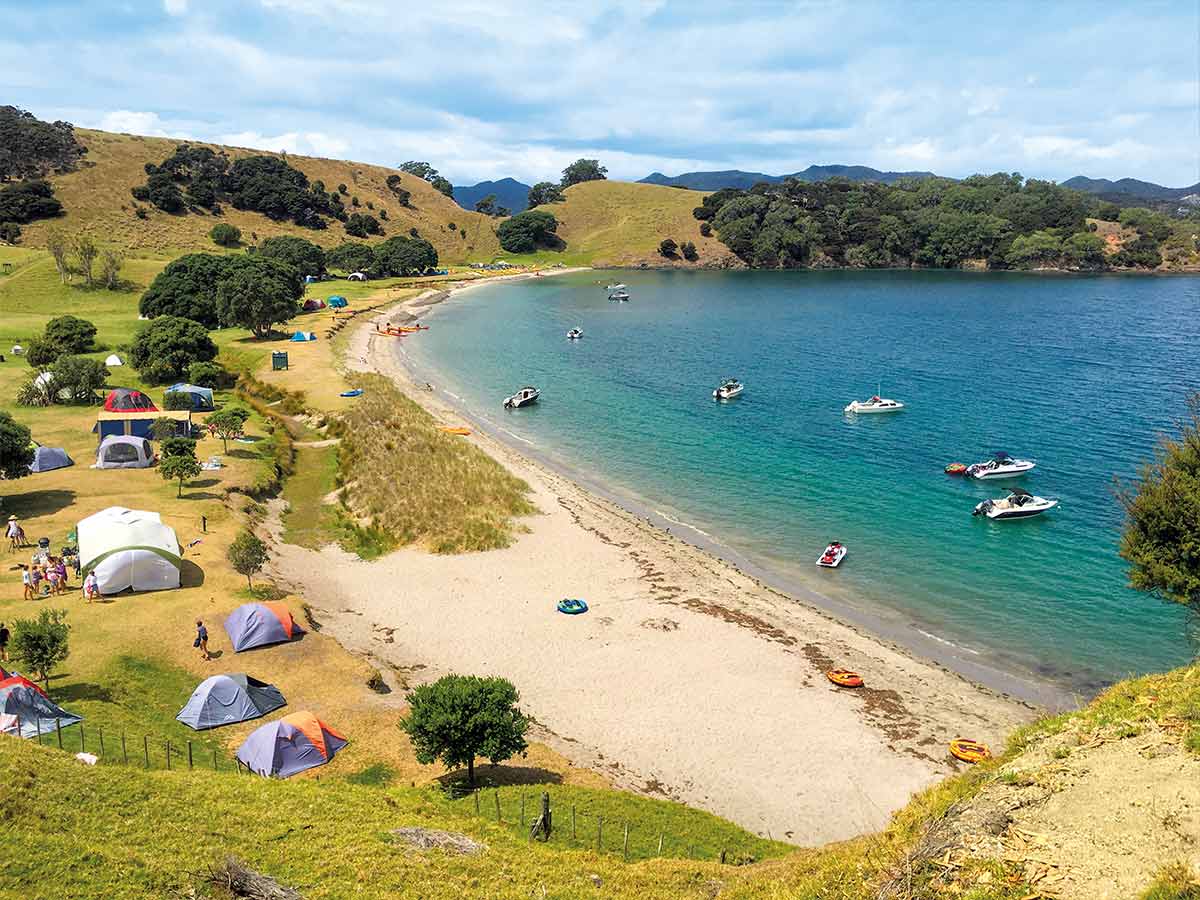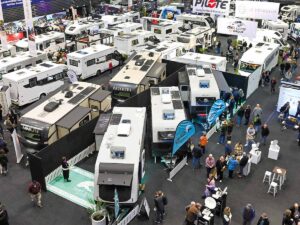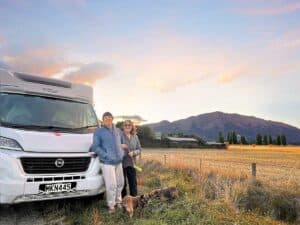Seasoned traveller Lisa Jansen takes a look at the various types of campgrounds available in New Zealand
If you’ve been travelling around New Zealand in a motorhome or caravan for a while, you’re probably already familiar with the different types of campgrounds. However, those new to the lifestyle might wonder what the options are. Therefore, this issue of Getting into Gear looks at the different types of campgrounds in New Zealand and how they compare, helping you choose which best suits your needs and budgets.
Holiday parks: comfort at a cost
Holiday parks, sometimes called motor camps or just campgrounds, are generally the most expensive option but offer the best facilities and services. At a minimum, campers can expect toilets, showers, and a kitchen. Many provide additional facilities, such as a laundry and shop, dump stations, lounges, playgrounds and even pools, tennis courts, and more. Almost all have powered sites.
Holiday parks are managed sites. In most cases, access is limited to campers, and staff is on-site 24/7, at least during summer. As a result, holiday parks are very safe. However, be aware that someone being on-site 24/7 does not mean check-in is open around the clock. Make sure you check office hours before you arrive to avoid disappointment. At most holiday parks, you will be assigned a specific site and must park within its boundaries. In addition, rules around quiet times, noise levels, and checkout times are often strictly enforced, which might be a downside for those who like more freedom.
Rates at holiday parks vary based on location, season, and facilities, generally ranging from $15 to $50 per person per night. Some charge per site and others by the number of people (and some a combination of the two). As a result, it can be tricky to compare pricing without having all the details. If in doubt, call the campground and ask.
It’s also worth noting that some holiday parks offer discounts for NZMCA members and other clubs.
DOC campsites: nature retreats with a minimalist touch
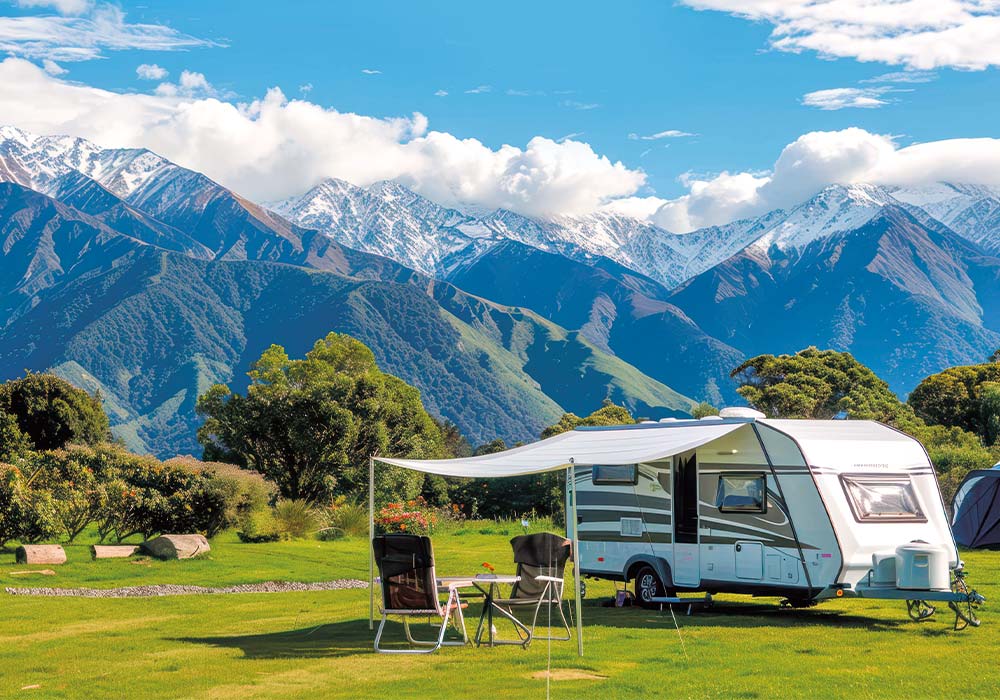
If you like camping the old-school way, in nature with minimal facilities, the Department of Conversation (DOC) sites are a great option. DOC manages more than 200 campsites nationwide, each providing a nature-centric experience. Often, you will find scenic walks and hikes, beaches, or lakes nearby.
There are five types of DOC campsites. Serviced campsites are similar to basic holiday parks in that they offer flush toilets, hot showers, rubbish collection, and more. Some even have powered sites. Accordingly, the price is also close to that of holiday parks at $20 per night for adults for non-powered sites.
Standard DOC campsites are less luxurious, often offering cold showers only (if any at all) and long drop toilets. As such, costs are lower at $10–$15 per night per adult. Basic DOC campsites are free but only have minimal facilities, so you need to be fully self-sufficient. The other DOC campsites are Backcountry and Great Walks sites, which are unsuitable for vehicles.
Campsites can be booked via the DOC website. Usually, there are also ways to pay on-site. Popular DOC sites often have a manager on-site during summer who can take payment and will look after things. However, remember to bring cash and be mindful that sites may be full, especially in summer.
Those who plan to stay at DOC sites regularly should consider purchasing a camping pass. Visit the DOC website to learn more and buy a pass.
Auckland Regional Parks: an urban oasis for campers
Auckland is the only region that manages its parks separately from DOC. With 25 of the 28 regional parks offering camping facilities, there are many great spots to choose from. Like DOC sites, the regional park campsites are often in beautiful locations surrounded by nature.
There are two types of sites. Full campsites, which are suitable for all campers and usually offer toilets and (cold) showers, and overnight parking spots, accessible for certified self-contained vehicles only. The latter are often in the general car park and don’t offer facilities. It’s also worth noting that many have gates at the entrance that get locked at night. Make sure you check the hours before your stay.
For frequent visitors, annual camping passes are available, but usage restrictions apply, especially during busy summer months. Regional Park campsites show on the mobile apps and can be booked via the Auckland Council website.
Freedom camping: free but not without complexity
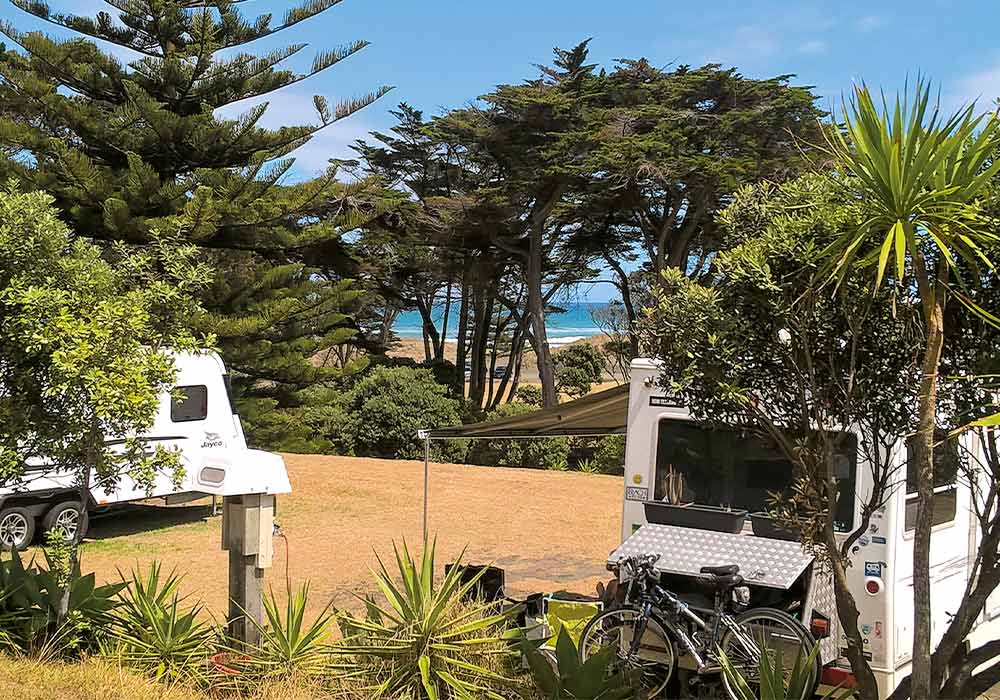
Freedom camping, as the name implies, allows campers to park up for the night without incurring fees. While some designated free campsites have basic facilities, a general rule of freedom camping is to expect no facilities. Therefore, this style of camping is most suitable for those with self-contained vehicles.
Unfortunately, the rules around where exactly you can freedom camp can be confusing and change from district to district. In addition, as the number of campers grows, freedom camping is becoming more and more restricted due to its impact on local communities and the environment.
However, with the correct information, and when done responsibly, freedom camping can be a great way to enjoy RVing.
Generally speaking, freedom camping is permitted on public land. However, individual councils can impose restrictions through bylaws – and many do. As a result, the easiest way to free camp is to stick to designated free sites approved by local councils or DOC. These can be found on the various mobile apps (CamperMate, Rankers, and NZMCA) or by checking with the individual councils. However, these sites can attract a high number of campers, especially in summer. Therefore, arriving early or having a back-up plan is advisable.
For those more adventurous, there are opportunities to freedom camp in places other than the designated sites. Check with local councils what’s allowed before you go off the beaten track to avoid expensive fines.
Regardless of where you free camp, understanding the rules is vital. They include leaving nothing but footprints and tyre marks behind, being respectful of locals and other campers, and following rules around the maximum stay duration and self-containment where they apply.
The rules for specific sites are usually listed in the mobile apps, on the council websites, and often at the campsite as well.
NZMCA Parks: members-only campsites
The New Zealand Motorhome and Caravan Association (NZMCA) operates 59 parks across the country exclusively for its members, with new ones added regularly. Priced at $5 per night per person, these parks are available for members with certified self-contained campers only.
Facilities vary, with some parks offering water, dump stations, and social areas, while others provide only parking spaces.
The NZMCA is a recreational club and its nationwide network of NZMCA Parks are designed to provide members with short-term stays only. Importantly, the parks do not allow for semi-permanent or long-term accommodation.
When visiting an NZMCA Park, members are generally permitted to stay for up to 10 days in any 30-day period (at each site). However, some parks have more restrictive timeframes due to their resource consent conditions or terms of lease.
Further details can be found on the NZMCA website (nzmca.org.nz) or mobile app.
POPs (Park Over Property): private camping experiences
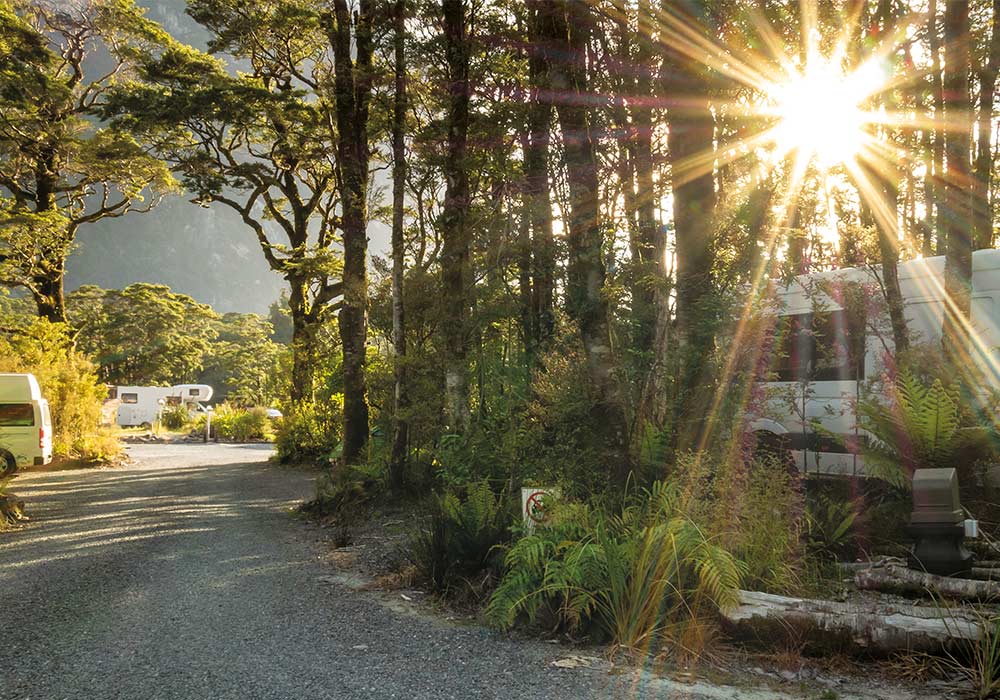
A rising trend in New Zealand is private individuals welcoming campers to stay on their properties. This is known as Park Over Property (POP). POPs range from simple driveways to grass paddocks and semi-professional campsites. Most have minimal facilities or none at all. While some POPs are free, most charge a fee, ranging from a couple of dollars to prices similar to holiday parks.
Traditionally, POPs were popular predominantly within the NZMCA community. However, in recent years, more and more Kiwis have opened up their properties to all campers. POPs can be found via the mobile apps, as well as the Campable website and app, which is specifically designed to facilitate camping on private property.
When planning to stay at a POP, make sure you familiarise yourself with the owner’s rules and follow them. This often includes details on how they want to be contacted, how to book (if booking is possible), and where to park.
With such a wide variety of campgrounds, every traveller is sure to find some that suit their needs. No matter where you stay, enjoy your camping experience.

